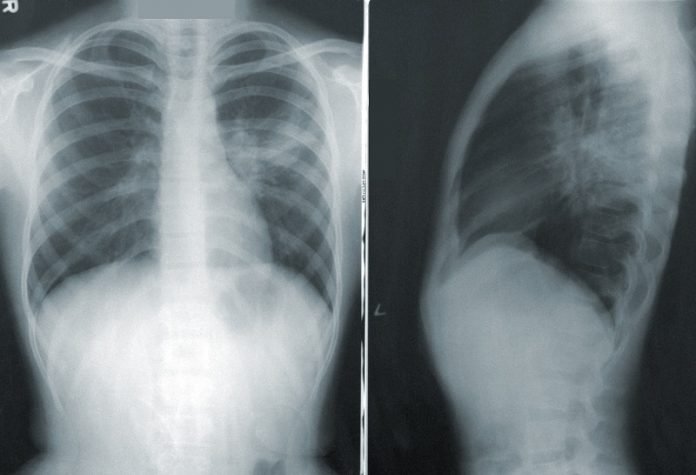
In a recent study from The Ohio State University, scientists found that blocking an immune response-related enzyme holds promise in preventing or treating severe COVID-19 symptoms by reducing inflammation, tissue injury, and blood clots in the lungs.
Scientists who have long studied this molecule’s functions in bacterial infections traced the development of extensive lung damage in infected mice to heightened levels of the enzyme triggered by the invading COVID-19 virus.
Versions of this enzyme exist and have similar functions in both mice and humans—they’re called caspase 11 and caspase 4, respectively.
After finding that the molecule is an attractive therapeutic target, researchers are exploring compounds that could safely and effectively block its activation.
In the study, researchers ran a number of experiments comparing COVID infection outcomes in normal mice and mice genetically engineered so they don’t produce the enzyme.
They also analyzed nationally available COVID-19 patient data and found that caspase 4 was highly expressed in people hospitalized in the ICU—linking its presence to severe disease.
Lung tissue samples from COVID patients also showed high activation of the molecule.
The sickest COVID-19 patients develop acute respiratory distress syndrome resulting from the combination of high levels of pro-inflammatory proteins called cytokines, fluid accumulation in air sacs that seeps into lung tissue, and blood clots, or thrombosis, caused by damage to cells lining vessel walls.
In a series of experiments, the research team found that inhibiting caspase 11 reduced the intensity of multiple effects.
They say that what happens in the lung with COVID can be worse than with other infections. It’s amazing that caspase 11 is controlling many of those unique aspects of COVID-19 pathology.
This research has opened up new ways of thinking about the enzyme’s possible role in a host of diseases.
Its role in exacerbating lung damage in COVID-19 was an unexpected finding—the activation of caspase 11 and caspase 4 in bacterial infections has a protective function, setting up immune cells to kill bacterial pathogens.
If you care about COVID, please read studies about the cause of inflammation and clotting in severe COVID-19, and this plant extract may help treat COVID-19.
For more information about COVID, please see recent studies about drug duo that may cure COVID-19, and results showing this existing drug can save damaged lungs in COVID-19.
The research is published in the Proceedings of the National Academy of Sciences and was conducted by Amal Amer et al.
Copyright © 2022 Knowridge Science Report. All rights reserved.



